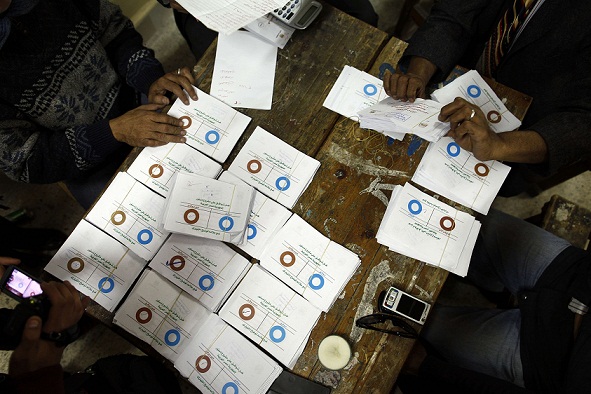In Pictures: Voting on referendum begins
Egyptians headed to polling stations early Tuesday morning to cast their…
‘Over 100,000’ expats vote in 2014 referendum: Foreign ministry
Voting ended Sunday; numbers down remarkably compared to 2012 referendum
Indecision stalls presidential bids
It has yet to be decided whether the constitutional referendum will be…
Sunday final day for Egyptians abroad to vote
Egyptian foreign ministry says a total of 94,000 Egyptians have voted abroad…
Misr Al-Qawia challenges Mansour’s amendment to political participation law
Law amended a week ahead of vote on new constitution
Egyptian expats head to the polls
Referendum voting begins for citizens living abroad
Carter Center releases statement urging political reform, inclusiveness
The statement encourages “meaningful dialogue” over referendum
Tunisia assembly begins voting on new constitution
Which must be adopted by January 14, the third anniversary of the…
Anti-Coup Alliance boycotts referendum
The referendum will take place on 14 and 15 January







